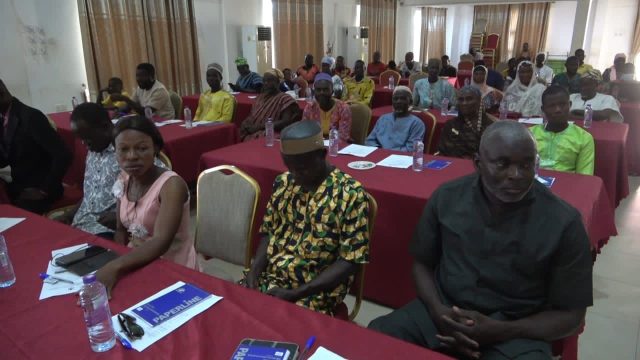Some families described as Gender Model Families (GMFs) in the Northern and North East Regions where couples live gender transformative lifestyles have shared their stories at a Gender Summit in Tamale saying the situation has brought a lot of progress to their homes.
The GMFs said due to the gender transformative lifestyles, there was no specific role assigned to husbands or mothers at their homes as husbands performed household chores if mothers were not around and vice-versa.
They said this had strengthened and deepened their marital relationships.
They also said the support they received in terms of best ways to rear animals and livelihood activities had helped them to better keep their animals to fetch good income at the market to help support their needs.
The Gender Summit was attended by six GMFs each comprising husband, mother, and a child drawn from six districts in the region including representatives of public institutions, traditional authorities, community leaders amongst others drawn from the six districts.
The districts were Tamale, Savelugu, Gushegu, Yendi, Zabzugu, and Chereponi.
The Gender Summit was to provide the opportunity for the GMFs to share their experiences and solicit commitments of support from stakeholders to promote gender equity among families.
It was also to bring the GMFs from different communities in a district together at the regional level to share their experiences of living gender equitable lifestyles with stakeholders doing work related to gender, women economic advancement/empowerment, social protection, social inclusion amongst others.
It formed part of the activities under the Volunteers Engaged in Gender Responsive Technical Solutions (VETS) project being implemented by SEND GHANA with funding from the Global Affairs Canada.
The VETS project seeks to contribute to improving the economic and social well-being of the poorest, marginalised people, particularly women and girls, in the six districts through animal, human and environmental health contributing to the Sustainable Development Goals.
Mr Mohammed Mumuni, Regional Programme Manager of SEND GHANA, speaking during the summit, appealed to traditional authorities and religious leaders to use their platforms to promote equity amongst families/homes.
The VETS project is built around the One Health concept, which recognises that the health of people, animals, and the natural environment is interconnected and the GMFs concept, is being promoted under the VETS project.
It also promotes the production of more and better food and increased incomes from livestock promoting land rehabilitation and conservation for sustainable development.
Mr Mumuni called on District Assemblies to ensure that their activities recognised the needs of women to promote gender equity.


















